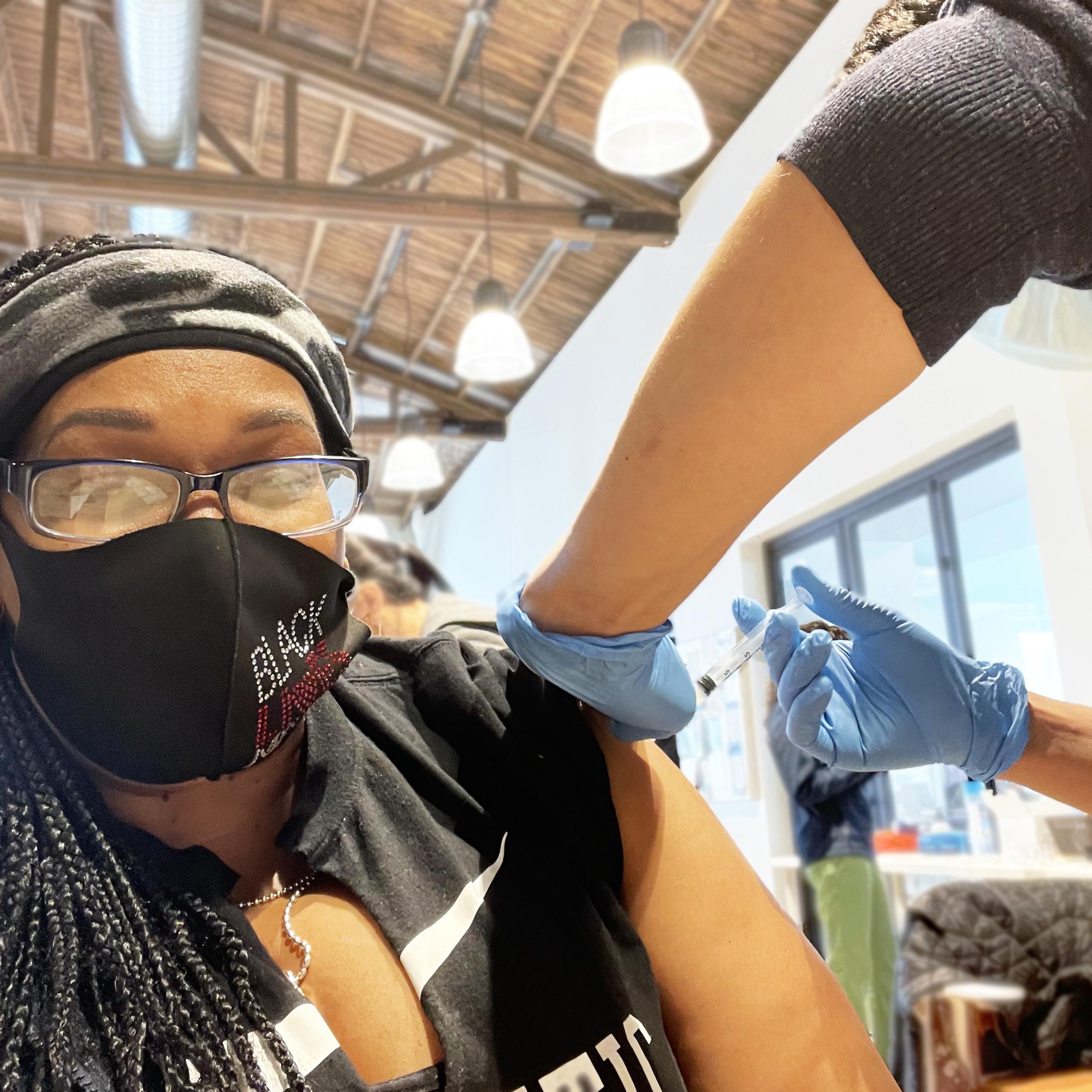Getting vaccinated can prevent getting sick with COVID-19 and spreading the virus to your co-workers and loved ones. But it's normal to have questions.
VACCINE LOCATIONS
Many AFSCME members will have the chance to be vaccinated at work. For a searchable listing of other Illinois locations offering COVID vaccines to the public, click here.
VIDEO FAQ
In a virtual town hall meeting presented in mid-January by the Illinois Department of Human Services, Dr. Emily Landon - an infectious disease specialist at the University of Chicago - answered many of the most commonly asked questions about the COVID-19 vaccines. Click here to watch.
At 95% efficacy, the COVID-19 vaccines are extraordinarily effective at protecting you from the virus. They were approved after a rigorous, transparent research process conducted by medical experts. Even so, some people remain skeptical or concerned. That’s normal, and AFSCME wants to help answer any questions you may have. Click to watch this Feb. 4, 2021, virtual forum and Q&A with AFSCME staff and union members.
FACT SHEET
For a PDF version of this fact sheet that you can print out, click here.
FACT: Getting vaccinated can prevent getting sick with COVID-19.
The individual impact of COVID-19 varies, from mild symptoms to severe illness and death. There is no way to know how COVID-19 will affect you, even if you do not have underlying health conditions that put you at increased risk of severe complications. Both the Pfizer and Moderna vaccines are a safe and effective way to protect yourself from getting sick with COVID-19.
FACT: You cannot get COVID-19 from the vaccine.
Neither of the authorized vaccines contain the live virus that causes COVID-19. The vaccines contain mRNA which works with the body’s natural defenses to safely develop an immune response to the disease. When vaccinated, you will not test positive on viral tests, which are used to see if you have a current infection.
FACT: The currently available vaccines have proven to be safe.
The vaccines were tested in clinical trials involving more than 70,000 people combined to make sure they meet safety and efficacy standards and protect adults of different ages, races and ethnicities. These clinical trials were conducted according to rigorous standards set forth by the FDA. Even though no safety issues arose, the CDC and FDA will continue to monitor the vaccines for serious side effects. Monitoring vaccine safety is critical to ensuring the benefits of the COVID-19 vaccines continue to outweigh the risks associated with contracting the virus.
KEY QUESTIONS ANSWERED:
How were the vaccines developed so quickly and what is an Emergency Use Authorization (EAU)?
An EAU is a process by which the FDA can provide access to medical products, including a vaccine, in response to a public health emergency. For an EAU to be issued for a vaccine, the FDA must determine that the known and potential benefits outweigh the known risks of the vaccine.
In evaluating the EAU requests for the COVID-19 vaccines, the FDA evaluated the relevant statutory criteria and the scientific evidence available. The clinical trials generated the data and information used by the FDA to determine safety and effectiveness. Manufacturing and controls to ensure the quality and consistency of the vaccine product are also considered as part of the EAU.
The approved COVID-19 vaccines were subjected to a 3-phase clinical trial conducted according to the rigorous standards set forth by the FDA involving tens of thousands of study participants. The vaccines could be developed quickly because the US government, international counterparts, nonprofit organizations, academia and pharmaceutical companies developed a coordinated strategy for prioritizing and speeding the development of the most promising vaccines. Improvements in technology supported these efforts. In addition, the federal government made investments in manufacturing which allowed for faster distribution of the vaccine. No scientific standards were sacrificed in the development of the approved COVID-19 vaccines.
Is vaccination right for everyone?
The vaccine is appropriate, indeed essential, for nearly every adult. The exceptions are as follows:
- You should delay vaccination if you’ve been diagnosed with COVID within the past 14 days or have a fever or other illness. In addition, CDC recommends the Pfizer and Moderna vaccine be separated from other vaccines, like the flu shot, by 14 days.
- The vaccination has not been studied on pregnant women and immunocompromised patients, so the CDC recommends those individuals consult their medical providers about vaccination.
- Individuals who have a history of severe allergic reactions should consult CDC guidance and their medical provider before vaccination, as there are rare reports of severe allergic reaction to the vaccine.
Do I still need the vaccine if I’ve already had COVID-19 and recovered?
Yes, the CDC recommends that you get vaccinated even if you have already had COVID-19. While you have some natural immunity after recovering from COVID-19, it is not known how long this protection will last. So the vaccine can help protect you after that.
What has been the experience of other employees in health care and long-term care who have already received the Pfizer or Moderna vaccine?
As of January 5, 2021, 176,586 doses of vaccine have been administered in Illinois and over 5 million doses have been administered nationwide. Of that entire number, there have been only a handful of what would be considered serious allergic reactions. All were treatable and none were comparable to the often severe consequences of COVID-19.
What are the most common COVID-19 vaccine side effects?
The COVID-19 vaccine may cause side effects, but they should go away within a few days. This does not mean you have COVID-19, but rather that the vaccine is working to build immunity. Reported side effects include pain at the injection site, fever, headache, muscle aches and pains.
Are both doses of the vaccine needed?
If it is a two-dose vaccine, both are needed within the required timeframe for the vaccine to be most effective. The first shot allows the immune system to recognize the virus and the second shot strengthens the immune response.
Can I still spread the virus after I am vaccinated?
Virus transmission was not studied as part of the clinical trials, so it is still unknown whether the approved vaccines stop the spread of COVID-19. Because COVID continues to circulate widely across the United States, it remains important that individuals continue to wear masks, follow guidance on social distancing, and wear appropriate PPE to reduce the spread of the virus.

